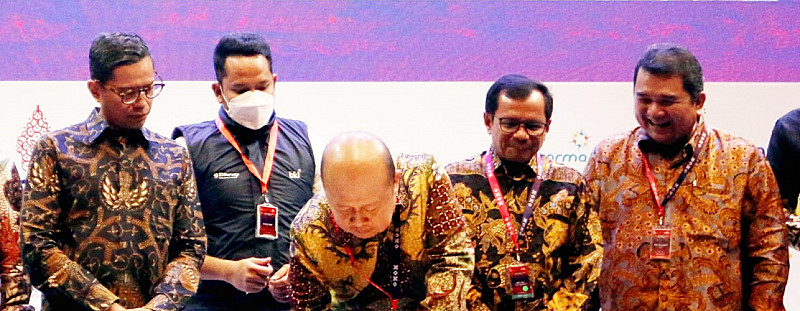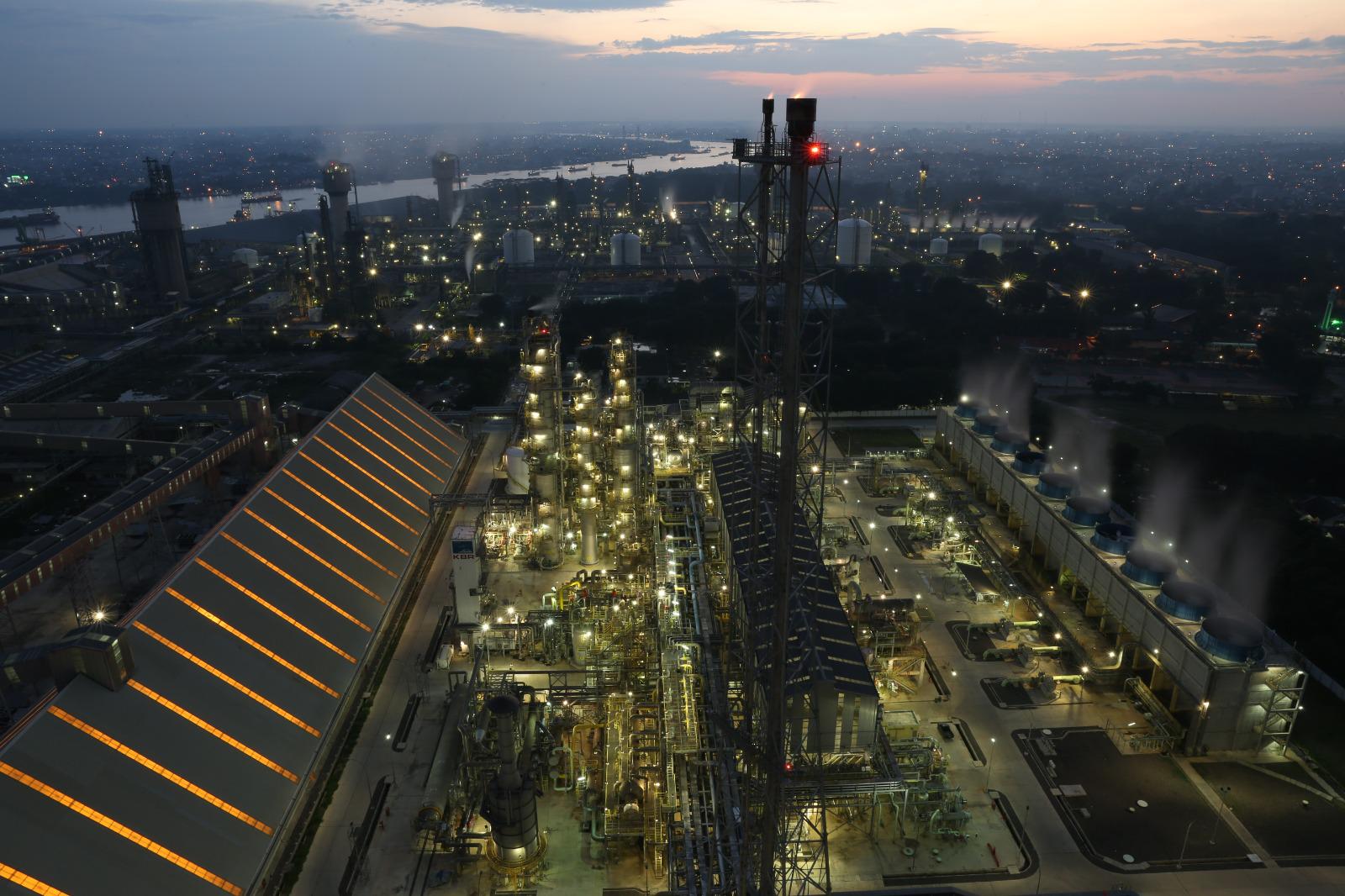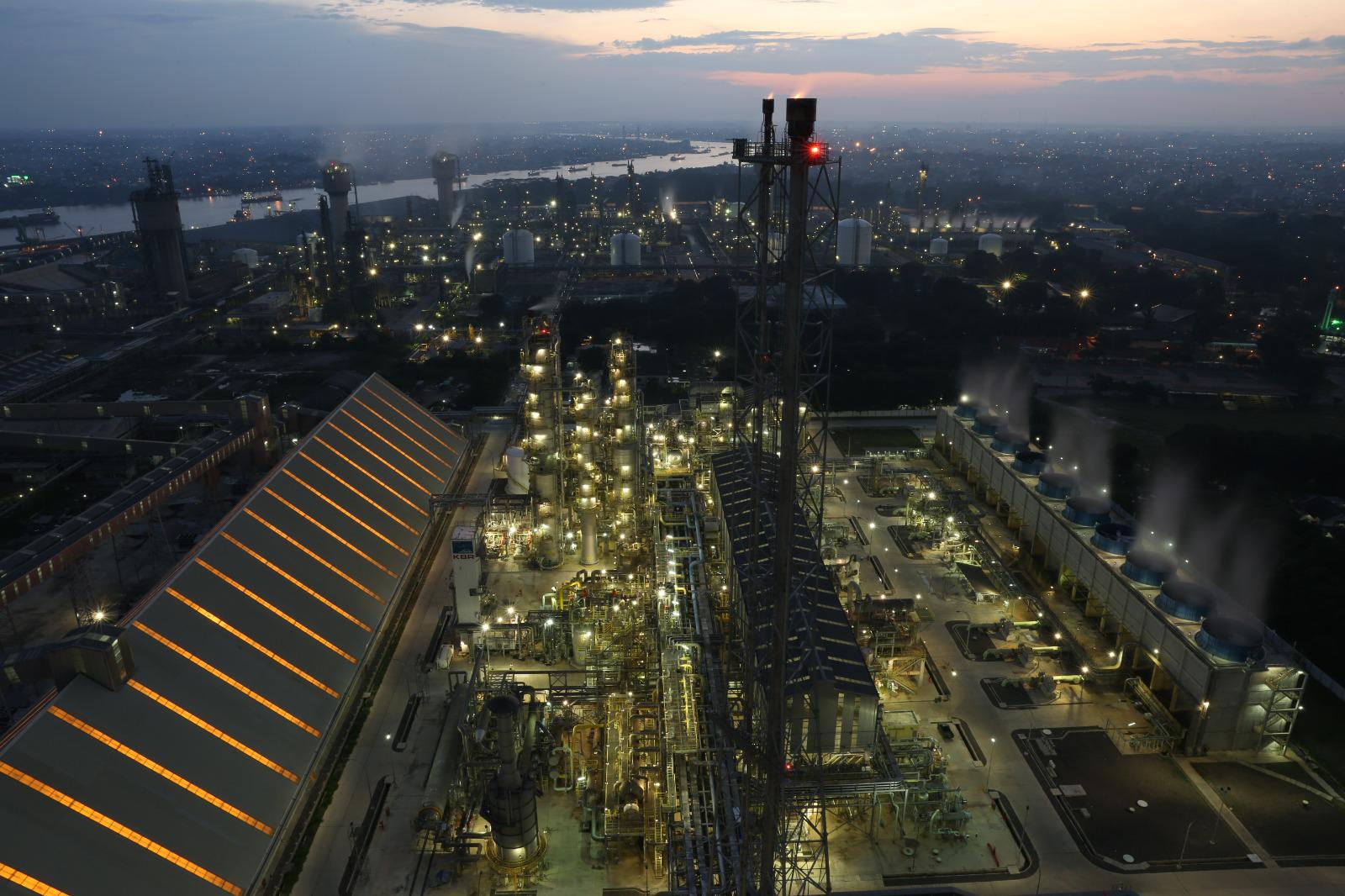Pupuk Indonesia Dukung Proyek Pilot Perdagangan Karbon Kementerian BUMN

BALI (19/10) - PT Pupuk Indonesia (Persero) mendukung penuh upaya Kementerian BUMN untuk menurunkan emisi karbon nasional. Komitmen ini ditunjukkan melalui penandatanganan Letter of Intent (LOI) tentang Proyek Pilot Perdagangan Karbon Kementerian BUMN Voluntary Carbon Market (KBUMN VCM) yang diteken bersamaan dengan acara State Owned Enterprise (SEO) International Conference di Bali pada 17-18 Oktober 2022.
Wakil Menteri BUMN I Pahala Mansury menyebutkan bahwa pada tahap awal ini, perdagangan karbon masih bersifat sukarela. Hal ini sebagai bentuk persiapan dan kolaborasi perusahaan BUMN sebelum pemerintah resmi memberlakukan perdagangan karbon. Juga sebagai upaya untuk mendukung target penurunan emisi, sekaligus dorongan untuk melakukan transisi energi.
“Kita melihat kolaborasi antara BUMN sendiri untuk membangun kerja sama dalam menghasilkan energi dan menurunkan emisi bisa dilakukan. BUMN kita juga bisa kerja sama dengan negara lain. Pada intinya, bagaimana BUMN bisa bersama-sama melakukan transisi energi,” jelas Pahala.
Setidaknya terdapat delapan perusahaan BUMN yang menandatangani LOI ini. Mereka adalah Perum Perhutani, PT Inalum, PT PLN, PT Perkebunan Nusantara (PTPN), PT Pertamina, PT Semen Indonesia, dan PT Biro Klasifikasi Indonesia (BKI). Dalam hal ini, BKI bertindak sebagai fasilitator, sedangkan ketujuh perusahaan BUMN lainnya sebagai pihak yang berkeinginan untuk menjual atau membeli dalam proyek pilot perdagangan karbon ini.
Kedelapan perusahaan BUMN ini berkeinginan untuk berpartisipasi secara aktif dalam proyek pilot perdagangan karbon KBUMN VCM berdasarkan pencapaian target tahunan pengurangan emisi karbon. Sebagaimana keinginan Menteri BUMN Erick Thohir bahwa perusahaan BUMN diharapkan menjadi pionir dan role model dalam penerapan dekarbonisasi.
Kementerian BUMN pun telah membentuk Project Management Office (PMO) Dekarbonisasi pada tahun 2021. Tujuannya adalah untuk memastikan proyek strategis dan aksi korporasi ke tujuh perusahaan BUMN tadi agar dapat mendukung target dekarbonisasi.
Sementara itu, Direktur Utama Pupuk Indonesia, Bakir Pasaman, menyatakan bahwa perusahaan turut mendukung proyek pilot perdagangan karbon yang diinisiasi oleh Kementerian BUMN. Menurutnya, program ini selaras dengan peta jalan dekarbonisasi perusahaan yang turut mendukung target Net Zero Emission pemerintah pada tahun 2060.
“Kami akan membeli emisi dari perusahaan perkebunan, untuk menutupi emisi yang sat ini masih kami hasilkan. Tapi untuk kedepannya, pabrik-pabrik milik Pupuk Indonesia tidak lagi akan menghasilkan emisi karbon. Sehingga kedepan kami bisa menjadi pihak yang menjual kredit emisi karbon,” jelas Bakir.
Perdagangan karbon sendiri adalah transaksi jual-beli credit carbon yang telah tersertifikasi. Dalam hal ini, setiap perusahaan atau entitas diberikan batasan emisi karbon maksimum. Adapun perusahaan yang telah mengendalikan emisi karbon dengan baik dan belum mencapai batasan karbon, dapat menjual credit carbon nya ke perusahaan lain yang masih melebihi batasan karbon. Dengan demikian, perdagangan karbon ini dapat memastikan bahwa perusahaan secara keseluruhan tidak melebihi tingkat emisi karbon dasar.
Adapun tujuan dari perdagangan karbon adalah untuk secara bertahap mengurangi emisi karbon secara keseluruhan. Sehingga dapat menekan kontribusi emisi karbon terhadap perubahan iklim dunia. Hal ini menjadi salah satu bentuk konkrit perusahaan BUMN menjalankan komitmen pemerintah Indonesia dalam sejumlah kesepakatan internasional terkait penurunan emisi global.






.jpeg)
